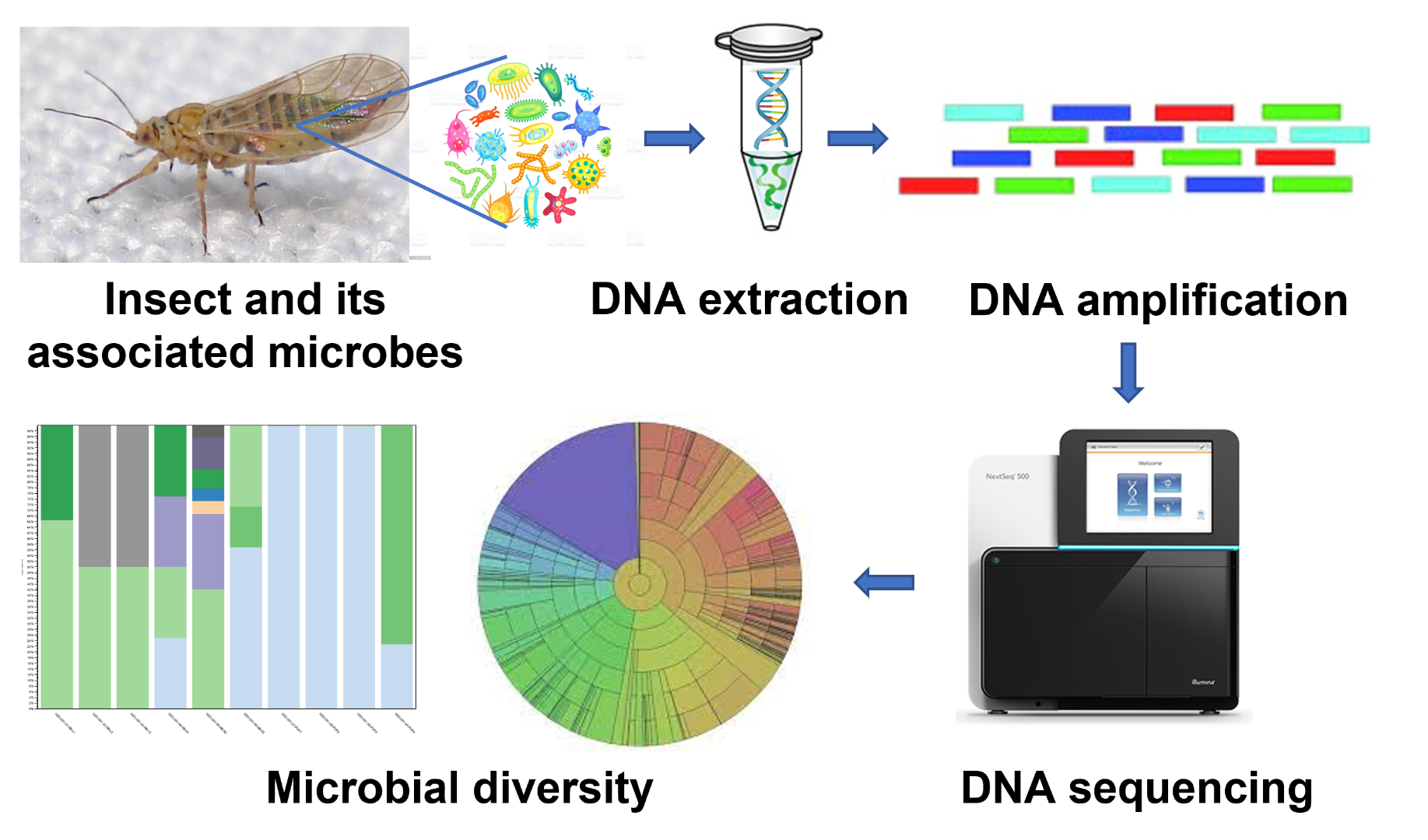Using a new diagnostic approach for screening biological control agents
Cytisus scoparius, also known as Scotch broom, is a woody shrub native to western and central Europe and a serious invasive weed in the United States and New Zealand. As part of a biological control program in New Zealand, a sap-sucking insect Arytainilla spartiophila, also known as the broom psyllid, was imported from the United Kingdom, and released to New Zealand in 1993.
In collaboration with CABI in the United Kingdom and Landcare Research in New Zealand, a retrospective risk assessment provided evidence that a bacterium was accidentally introduced into New Zealand via the weed biocontrol agent. This vector-borne bacterium belongs to a group of pathogenic bacteria responsible for important plant diseases.
Because of this and other accidental introductions via the importation of biocontrol agents, insect microbiome investigations are becoming an essential procedure for pre-release safety screening of biological control agents that are potential vectors of plant pathogens.
European Biological Control Laboratory (EBCL) researchers are applying a new diagnostic approach using metagenomics to new and promising biocontrol agents. Metagenomics is the study of collecting genetic material from a mixed community of organisms. By using this technique, researchers will be able to make sure biological control agents under evaluation are not carrying any plant-based diseases.

Author: Mélanie Tannières
Contact: Michael Grodowitz
The European Biological Control Laboratory (EBCL) was established in 1991 near Montpellier, France. EBCL was created by the merger of the former European Parasite Laboratory, established in Paris in 1919, and the Biological Control of Weeds Laboratory in Rome. EBCL has a satellite laboratory in Thessaloniki, Greece. As the only USDA ARS-operated laboratory outside the United States, EBCL develops biological control technologies which can be used to suppress invading weeds and insect pests of Eurasian origin. EBCL researchers do this by searching for natural enemies (insects, mites, and pathogens) in their native habitat, determining their identity, testing their host specificity and potential impact in laboratory and field experiments, and shipping promising organisms to the U.S. for further testing as biological control agents. EBCL collaborates with scientists in many countries in Europe, Asia, and Africa to explore in regions of origin of the target weeds and insects.
